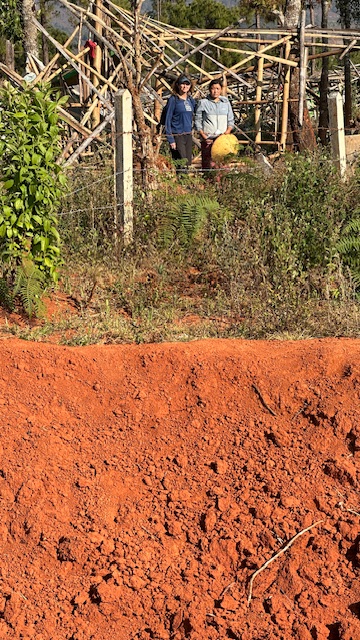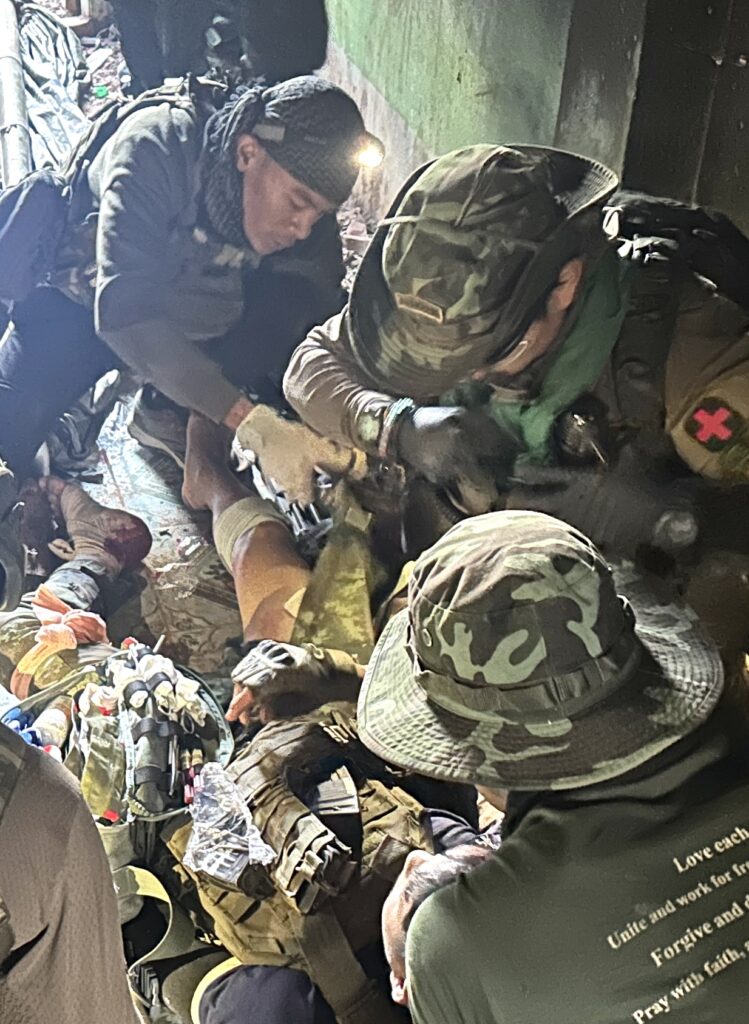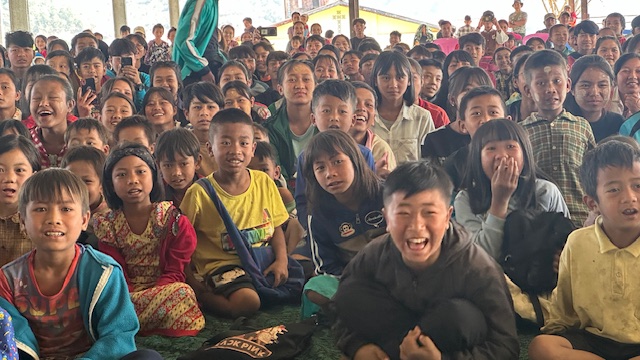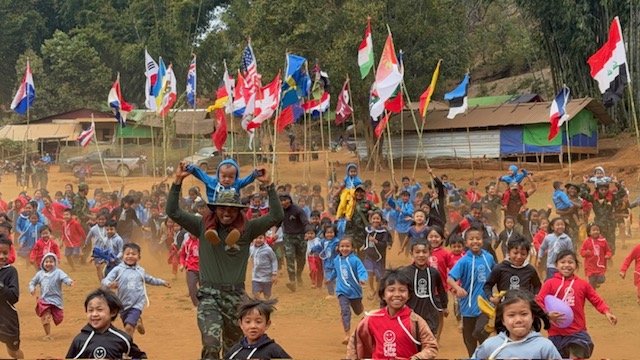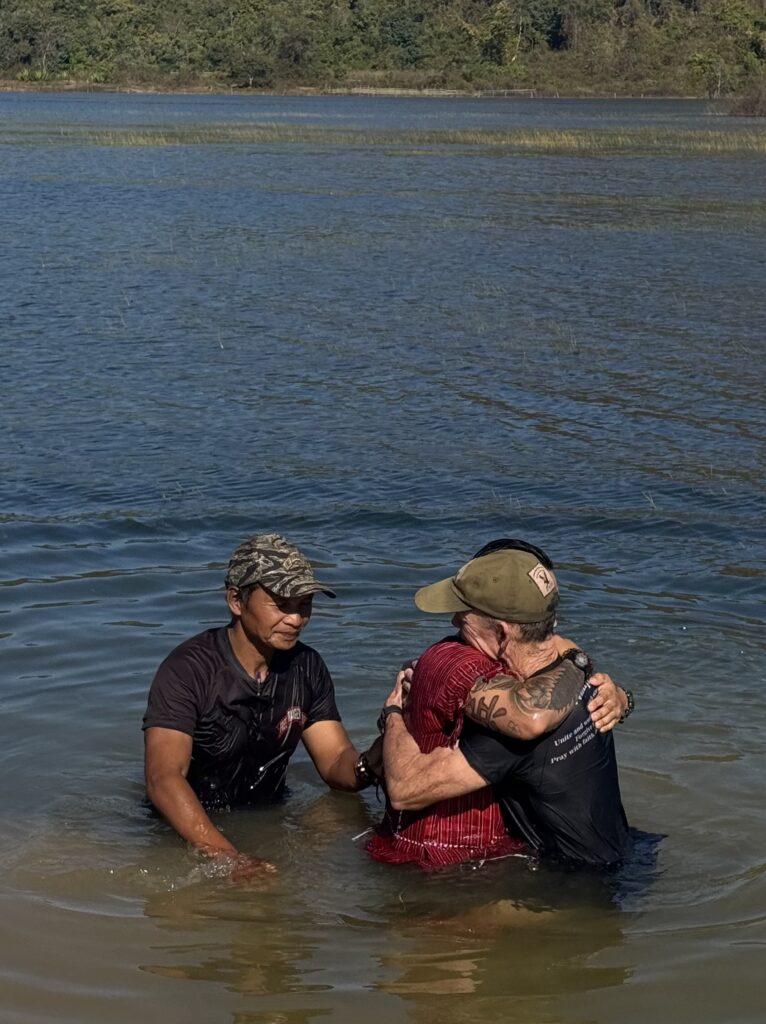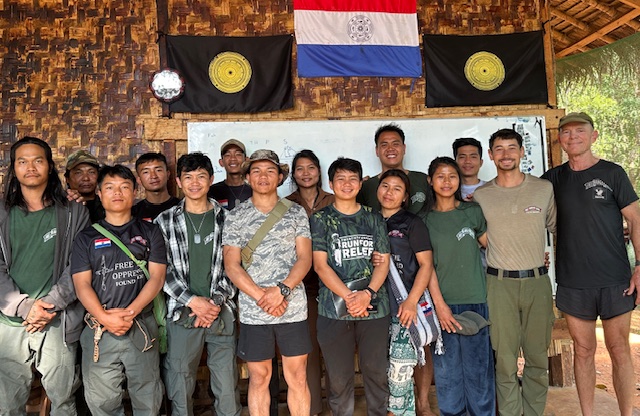I Want to Go Home: Let’s Help Burma be Free
27 February 2025
Loikaw, Karenni State
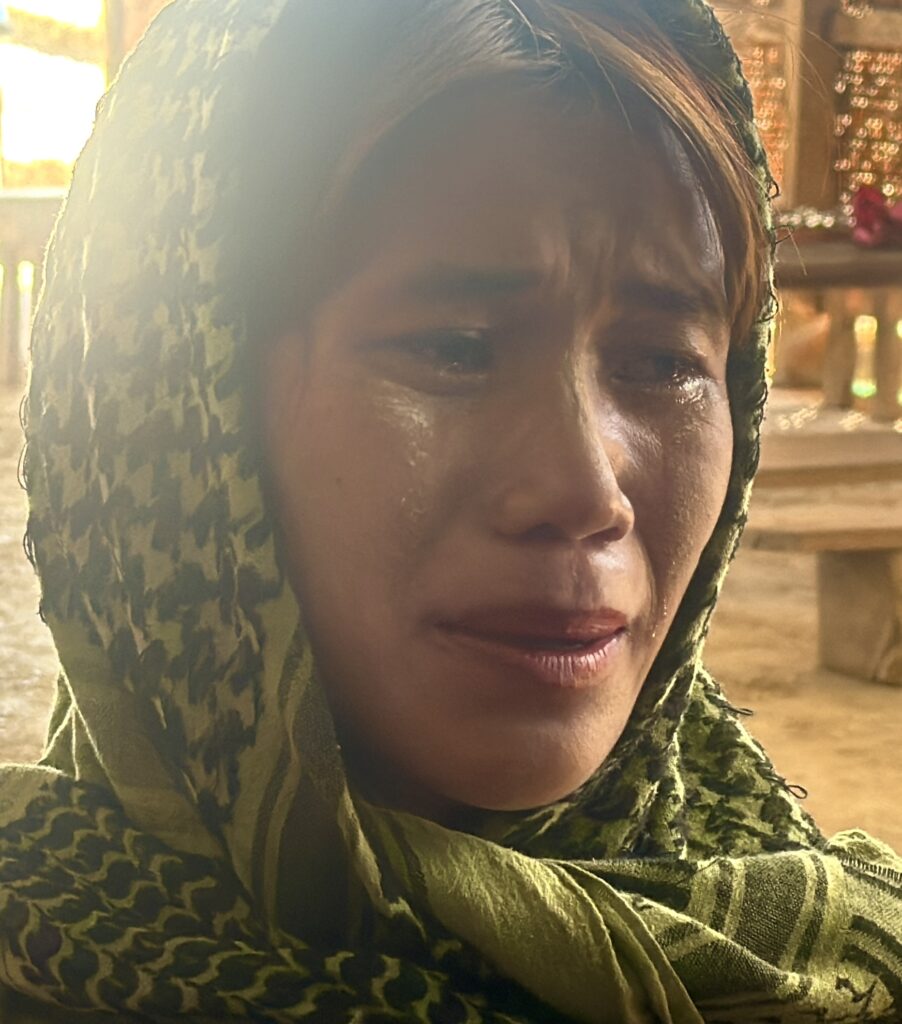
“I want to go home,” lamented one of our Burman FBR team leaders, Yar Su. Normally, he is a cheerful comedian leading our Good Life Club (GLC) programs among displaced people. Even when there is fighting, he’s at the front lines with a smile on his face, saving people. No matter where he is, he’s smiling.
But this time there was no smile on his face, just a deep sadness.
This is the fourth year he has been away from home. When the coup first started on February 1, 2021, he and other students rose up in the streets and asked for democracy to be restored. Even though it was not much of a democracy, it was better than a full dictatorship. However, the dictators only answered with bullets, gunning down Yar Su’s friends, and many others, all around him. Yar Su managed to escape to the jungle, where he realized that only unity between the Burmans and the ethnics could bring democracy and peace to Burma.
He committed himself fully to this idea and, when he heard about FBR, he joined us. He quickly became one of the stars of our GLC programs and unexpectedly one of the great heroes in combat, saving many people under direct fire. He was wounded twice.
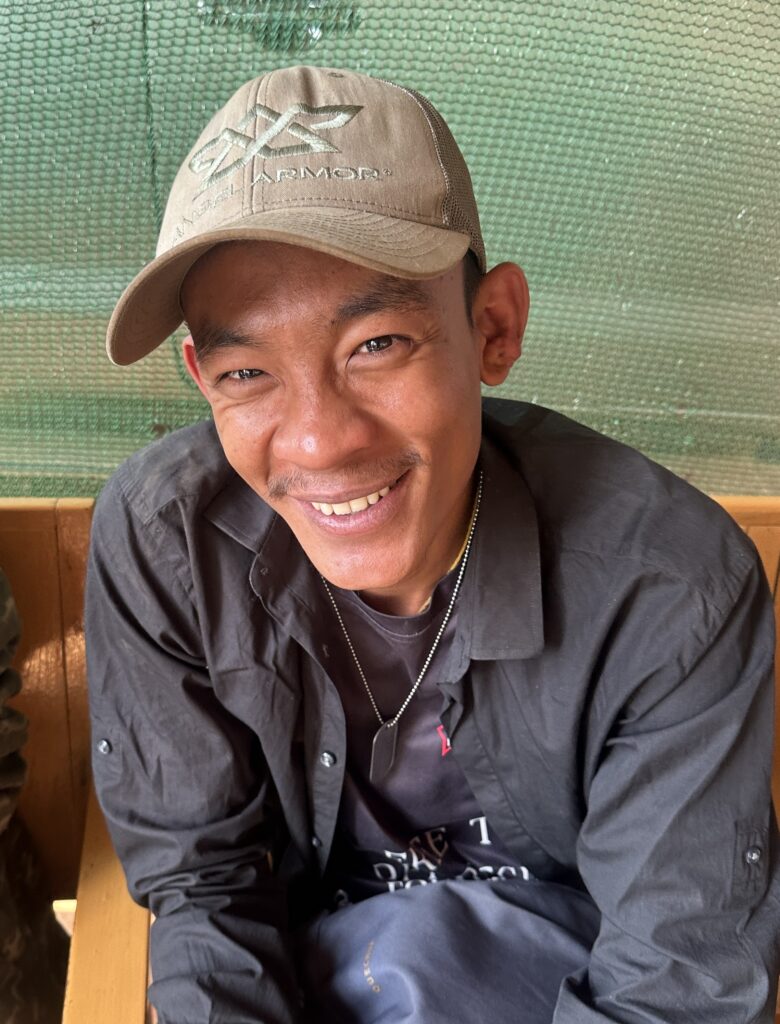
One of the times he was wounded was from a mortar round that dropped near him as he helped carry out the wounded. It exploded, knocking him to the ground and leaving him unable to move. The rest of the team didn’t see him fall and kept moving as quickly as possible. As Yar Su watched his teammates leaving him behind, he heard something tell him to, ‘call out to God for help.’ Three times in a row he heard this and so he finally called out, “God help me.”
At that very moment, in the early morning in America, my daughter Suuzanne woke up. She, like our other children, Sahale and Peter, has known Yar Su since the coup and they all are close to him. Suu said God’s voice woke her up, saying, “Pray for Yar Su.” So Suu began to pray and at that moment in Burma, Yar Su said the people running ahead of him suddenly stopped, turned around and saw that he was lying on the ground unable to move. If they hadn’t, he would have been left behind to bleed to death or be captured and finished off by the Burma Army.
Yar Su recovered, and when he shared his story with me, I was deeply moved. He is one of the bravest, most positive, and cheerful team members we have. Yet now he simply hung his head and said, “I really want to go home.”
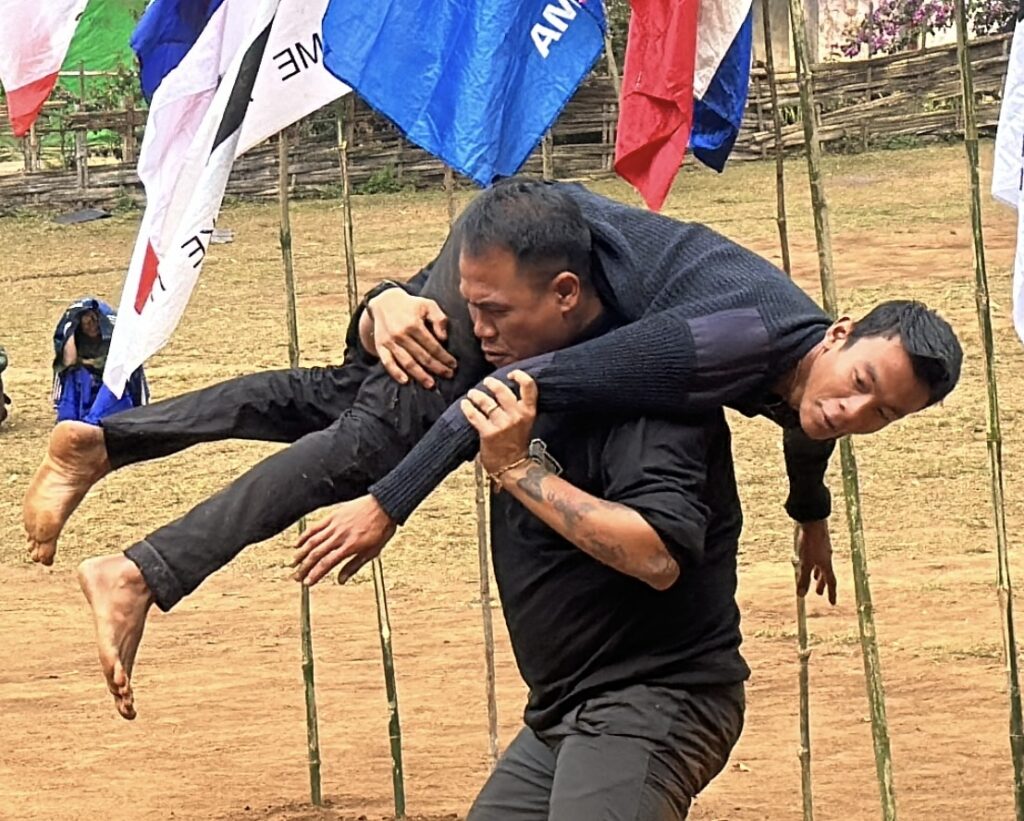
The next day, during a children’s program for displaced people outside Loikaw in Karenni State, a group of women voiced the same longing and later, as we prepared to enter Moebya, just inside southern Shan State, to support the Karenni resistance, we met more women in hiding. They told us, “You’re going back to our village. I hope our young sons can liberate it. I hope you can help them. I hope we can go home.”
We went in alongside their young sons, who met the Burma Army and successfully pushed them out of most of the town. However, 15 Karenni fighters were wounded. Two of our Rangers were injured while evacuating casualties, and one of our Rangers—just behind the casualty collection point—was killed. Even though the Burma Army was pushed back, they continued to shell and conduct airstrikes on the village, preventing the ladies and other villagers from going home. This was a tragedy.
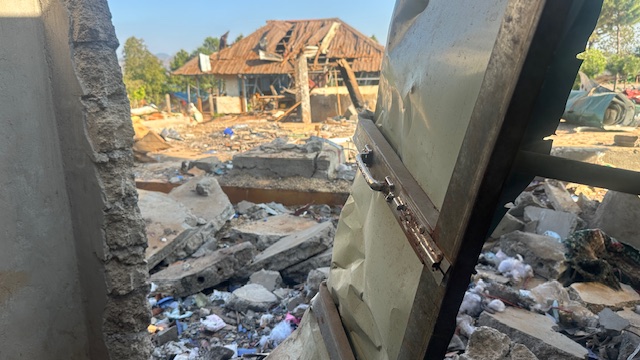
The refrain I hear all across Burma now, four years into the coup is, ‘I want to go home.’ But no one can go home unless they’re willing to face certain death at the hands of dictators.
My appeal to anyone who reads this is to pray and ask God what you should do to help these people. The needs as I see them, are first spiritual, to pray and then act as God leads. For the Free Burma Rangers, the foundational work we do is spiritual, sharing the love of God in Jesus’ name. The Free Burma Rangers is made up of people from different religions and faiths who are bound together by love to help others; we welcome all if they serve out of love. For me, I find the answer in Jesus and share Him.
Secondly, there are many physical needs. The most important is protection from attack by jet fighters, drones, heavy artillery, mortars, machine guns, and tanks, many of them supplied by Russia and China. Other physical needs include food, shelter, medicine, and education. There were over 10 million people displaced before the coup, and there are three and a half million displaced since the coup. Thousands have been killed; 67 of our own Ranger relief team members have been killed and 200 wounded. Much more help is needed and this help, I believe, should go directly to the people on the ground. Each pro-democracy group has their own humanitarian departments, most with decades of experience and a very good reputation for efficient and cost-effective relief. Most of these are run by volunteers who are not paid, they do it out of love for their families and people. Funds should go directly to these organizations and other community-based organizations, or on-ground humanitarian groups.
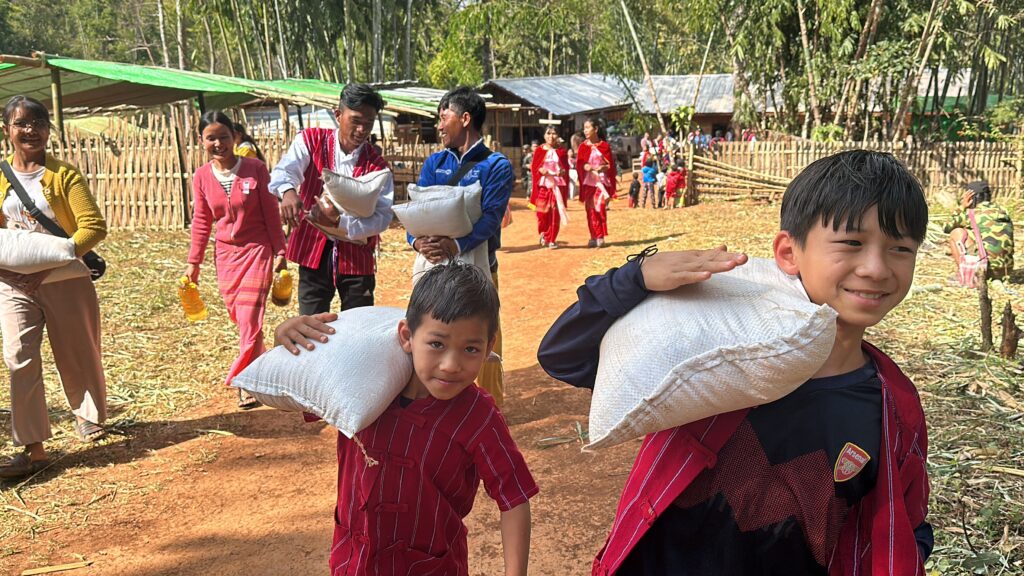
Thirdly, there are needs for policy changes and recognition by the international community. The pro-democracy groups and ethnic people of Burma need to be recognized and engaged internationally as legitimate organizations. They represent the desire of the majority of people in Burma, for freedom, justice, and new governance. Their distinct identities matter and no peace will last in Burma without respect and love for all peoples who live there.
In sum, we ask for prayer, protection and humanitarian assistance, and recognition for the people of Burma. This will result in a free Burma that would be a crucial regional partner for all freedom-loving countries in the world. Located on the south border of China and in between India and Thailand, a free Burma will be of great strategic importance and a valuable economic partner for all.
Burma used to be the number one exporter of rice in the world and has many resources that are squandered and wasted by the dictators and the war. Burma, under the military, is one of the leading global producers of opium and regional producers of amphetamines and the government is complicit in all of this.
The war destroys homes, lives, and nature. People are forced from their homes, burning formerly uninhabited jungle to plant crops to survive, destroying the environment. There’s no time to care for the trees or animals when you’re on the run. The environment will benefit from an end to the war and the environment has no borders.
Finally we help the people of Burma because that is what we would want if we were in trouble. We are all loved by God regardless of our faiths, opinions, or political views. Jesus told the story of the Good Samaritan when a religious leader asked him who his neighbor was. Meeting peoples’ needs and bridging the gap between strangers and enemies changes the world for good; it is in everyone’s interest. So, as we pray for the dictators’ hearts to change, for freedom, justice, and reconciliation, we stand with the people in need in whatever way we can.
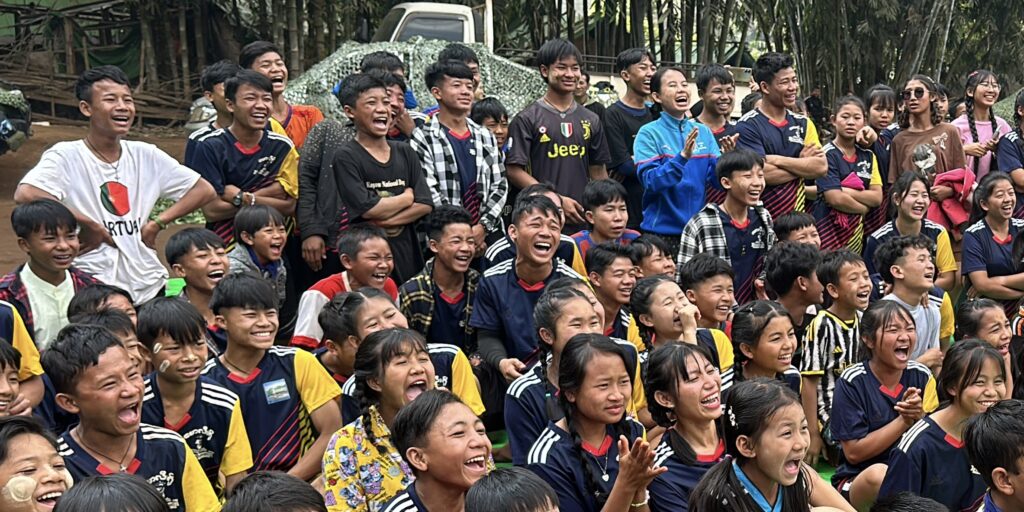
With all our help, Yar Su and his friends will hopefully one day go home.
Thank you and God bless you,
Dave Eubank, Free Burma Rangers
Below are more pictures of damage done by the Burma Army and the hope and help Yar Su and other Rangers are bringing:
